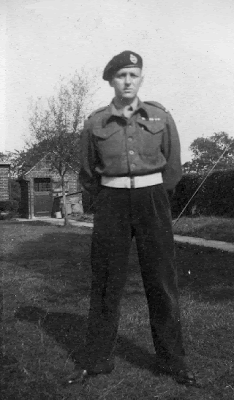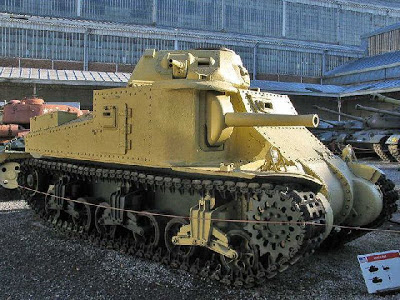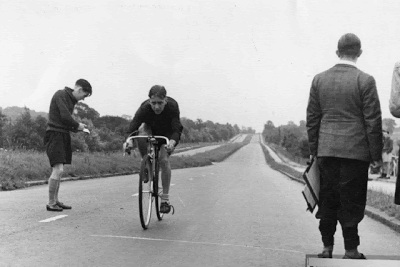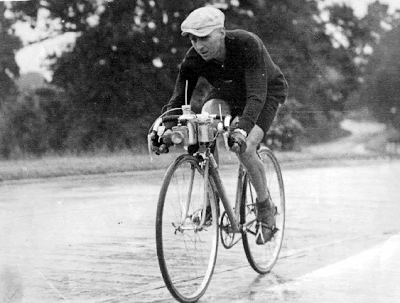Bill Thorncroft
It Ain’t Half Hot Mum
Bill Thorncroft’s Wartime Memories
On 15 May 1941, I changed my boss to H.M. King George VI when I reported at Tidworth Barracks and became a number: 972 Trooper Thorncroft W.
I went through the usual tortures, vaccinations, and various other jabs. Fortunately, being in the Royal Armoured Corps, there was very little square bashing and discipline was civilised. I was able to do only a little cycling; however my club, the Brentwood Road Club rallied round and I was able to spend a night at Winchester Youth Hostel with them. I believe there is still a hostel at this time which, if I remember correctly is at a watermill.
When training finished, I was sent to Liverpool to be barracked in a warehouse awaiting transportation to an unknown, far away place; spending a number of months there, sampling the delights of that city; not many I must say, at that time, but the natives were friendly!!
Off then to Greenock, and thence by a troopship to a destination still unknown. Spent some weeks in a convoy trawling the Atlantic, then came to a halt in Freetown Harbour, Sierra Leone: a stinking hole – had to spend a week or more in harbour, just waiting.
Eventually we were off, around the Cape to halt at Durban. We were allowed ashore; a marvellous place after the travails of the troopship. Nobody seemed to know what to do with us. Singapore had turned out to be our intended destination, but in the meantime the Japs had overrun the place.
At last we boarded the new Mauritania, fitted out as a troopship, and was reckoned to be so fast that it could sail non escorted: in a few days we landed at Port Tewfik (Suez), and the real war started.
Shifted to Abbasia barracks, Near Cairo. Introduced to bed bugs, cockroaches, ‘Shite Hawks’, i.e. vultures, which were in their thousands, lining every phone wire, or any other wire in sight. I suspect their diet to be rats, wild dogs, and anything they could get their claws into.
We were allowed into Cairo, in pairs. The Wise Oriental Gentlemen hated our guts as much as we came to hate them. They used to line the streets as ‘shoeshine’ boys, and if you didn’t need your boots polished, they would flick the black stuff they used as polish onto your shorts; they knew we were newcomers because of the lack of colour of our knees. Fortunately, arranged or not by higher authority, there were often a couple of old ‘sweats’ knocking about, who saw what happened and proceeded to up end their box of tricks and the ‘worker’ with it.
My first job was to drive a 3 tonner across Cairo. You’ve never seen such chaos in the streets as old Cairo, every vehicle was driven by a maniac, trams and buses packed to the gunwales, clients hanging on sides, on the roofs etc. Our cardinal instruction from the transport sergeant was if you hit anybody make sure he is a ‘goner’, if not back over him. There was a financial penalty involved, half-a-crown to bury him, or, if alive half-a-crown pension for life.
We then moved to a camp near the Pyramids, to do some desert driving. First time out, the truck broke down miles from the main road. The corporal in charge dropped an electric part in the sand and could not find it. So empty radiator, fill water bottles, and started legging it back. BUT, the N.C.O. hadn’t got a clue which way to go. Help was at hand, Boy Scout training , or cycle training, I happened to know where the Pole Star was.

Bill Thorncroft back in civvy street with ribbons and flash 
Grant M3 tank
From here I was posted to my first regiment the 6th Royal Tanks, where instead of being put in a tank crew, I was to become a supply driver. All very nice until I found out that I would be driving truckloads of high octane fuel, in flimsy 4 gallon tins which were taken up to the tanks in action; at this time, American ‘General Grants’
I can tell you that driving a load of high octane with the prospect of Stuka dive bombers doing their business frightened the life out of me and my colleagues. We used to drive with the door roped open, one foot on the running board, one on the accelerator, if you saw a Kraut plane you dived out into the sand which soon stopped the truck, and then hoped for the best. Driving with ordinary petroleum was somewhat less hazardous, if hit you stood a chance of getting out. Much the same driving ammunition.
Driving ammo once when retreating back towards the east, I got into severe trouble. My truck broke down, the clutch ‘packed in’ – not surprising, I had about 8 tons on a 3 ton truck. Fortunately a patrol armoured car saw my plight, picked me up and fired H.E. into the truck. Talk about 5th November.
The desert is a lovely clean place in normal circumstances, however, many of the troops were struck down by all kinds of complaints, jaundice, tonsillitis, malaria, many kinds of stomach bugs. By and large these were caused by lack of the right kinds of foods when away from base. A normal diet, for any meal was, ‘Bully’ – when you opened the tin it poured out, very dry cheese, hard biscuits, which before eating you had to tap it on something hard to shake the weevils out. Very rarely did one get any bread or fruit. Water was at a premium, sometimes as little as a pint a day. Washing ones clothes (DHOBYING) was normally done in high octane petrol, washed in two minutes, dried in about the same time.
Eventually the 6th RTR was taken out of action after the Battle of Knightsbridge on the Libyan border, the tank crews had been decimated. As I had only been in the desert 6 or so months I was transferred to the 5th RTR, another regular regiment, many of whose members had been in action since Day 1 of W.W.II.
After a short while with 5RTR, I was given a job as a clerk: my general health had deteriorated badly, jaundice, malaria etc. Eventually I landed in the regimental orderly room, a truck converted to an office. I used to be obliged to visit the Colonel and Adjutant at the front to collect orders and various instructions, more in my line of business! Having sorted out North Africa, the 8th Army, at least our part of it, the 7th Armoured Division (Desert Rats) were sent to make a landing at Salerno, in Italy. As far as I can make out tank regiments weren’t at their best in the hills and in close country.
We were taken out anyway, because the 7th Armoured were due to go home and prepare for D Day, my lot were billeted around Salerno, on the coast by Capri, overlooking Naples. They went home; I didn’t, at least for a month or so, I was rushed to hospital in Naples, with a gangrenous appendicitis.
When I came to after the operation, I was visited by doctors etc., and the padre, who happened to be one of the padres at my old school! Small world.
I got back home early February 1944, had some leave and spent some very cold days and nights at a camp near Brandon, Suffolk. Then the regiment was billeted at the West Ham Dog Track awaiting D Day; our lot went over very early on, without me. I went a week or so later and was sent up to a holding camp by the Orwell River near Levington, an area I knew well as my mother’s family had lived in that part of Suffolk.
Our Regiment had a hard time of it early on in Normandy, our R.S.M. was killed on the landing beaches; tanks weren’t a lot of use on the bocage country. They came more into their own on the German plains, having crossed the Rhine on that wonderful pontoon bridge – have we got engineers who build that kind of thing now? We were on the slopes of the big hill facing Hamburg, where we all witnessed the Lancasters bombing the place until it surrendered: our war virtually at end then. Just before that, in passing, we saw the inmates from Belsen having been freed. No comment.
After the European ceasefire, our time was spent resting and re-equipping in requisitioned accommodation beside the Kiel Canal. Whilst there I learned that I had been transferred to a ‘donkey bashing’ mob: Lothian & Border Horse, then equipped with Armoured Cars, and were earmarked to be sent to the Far East. Fortunately for me, and all of us, the Americans dropped the Atomic Bomb on Nagasaki which finished the Second World War.
In due course I was sent home, and to Bovington Camp in Dorset, home of the various Royal Tank Regiments, very little discipline, plenty of food, and joy of joys I had a bike down there, and was able to get riding again. During my travels in that part of the world I met a chap called Harvell who rode for Britain in the 1932 Los Angeles Olympics. Harvell introduced me the the Poole Wheelers, Poole Hard Track, and back to club riding.
I was eventually ‘demobbed’ in September 1946, and more or less straight back into club riding with the Brentwood, and to the Eastern Counties and R.T.T.C

Bill riding in a Romford Wheelers event in 1948.
Southend Road 25. Bill did a ‘6’.
Catford 24 hour ride 1953.
Bill on his first of many 24 hours rides. He is riding an Ephgrave with SA close ratio 3 speed. The frame is now with Bill’s friend John Yates and is still rideable.
These are my thoughts of what happened 65 – 60 years ago. I was lucky! Many of my friends were not.
WT/JY.